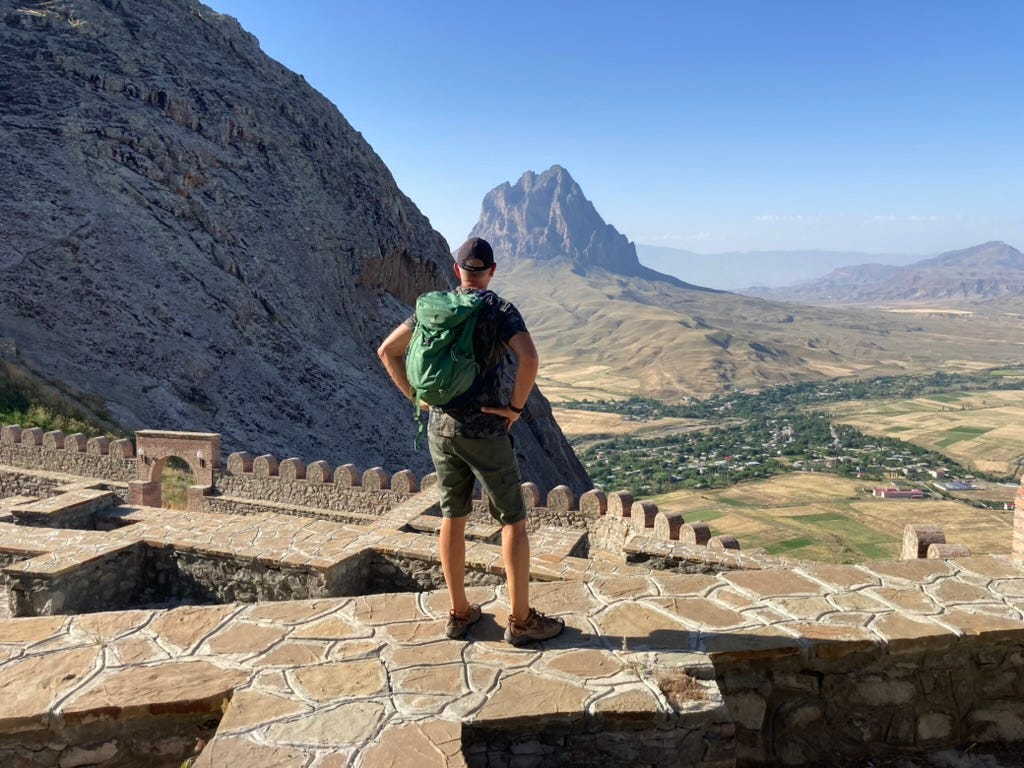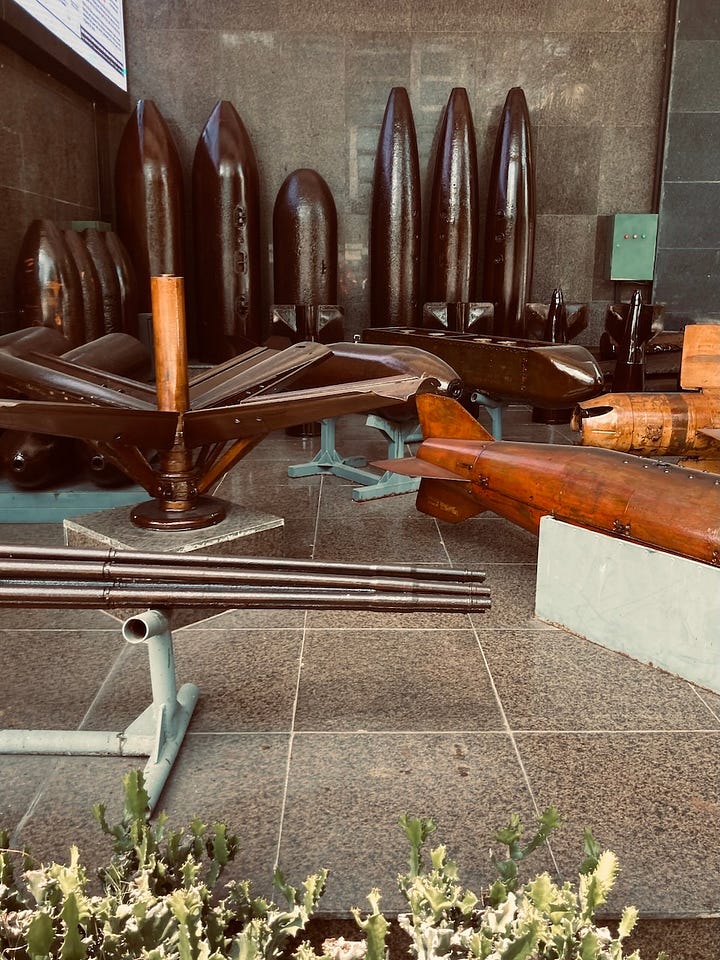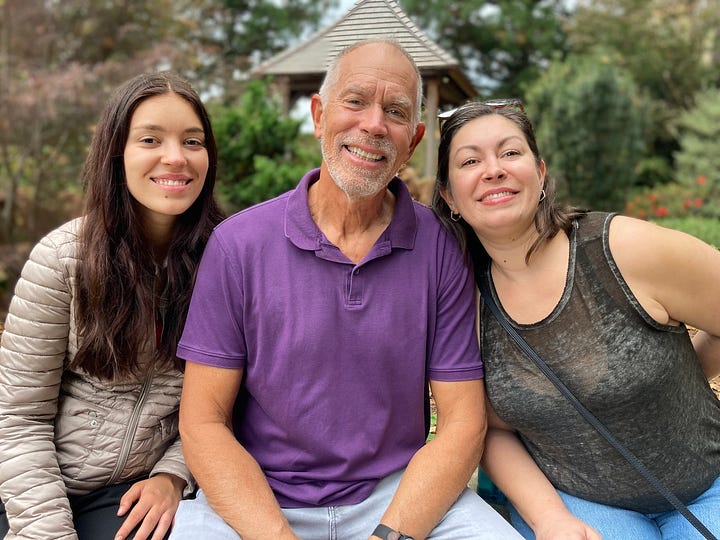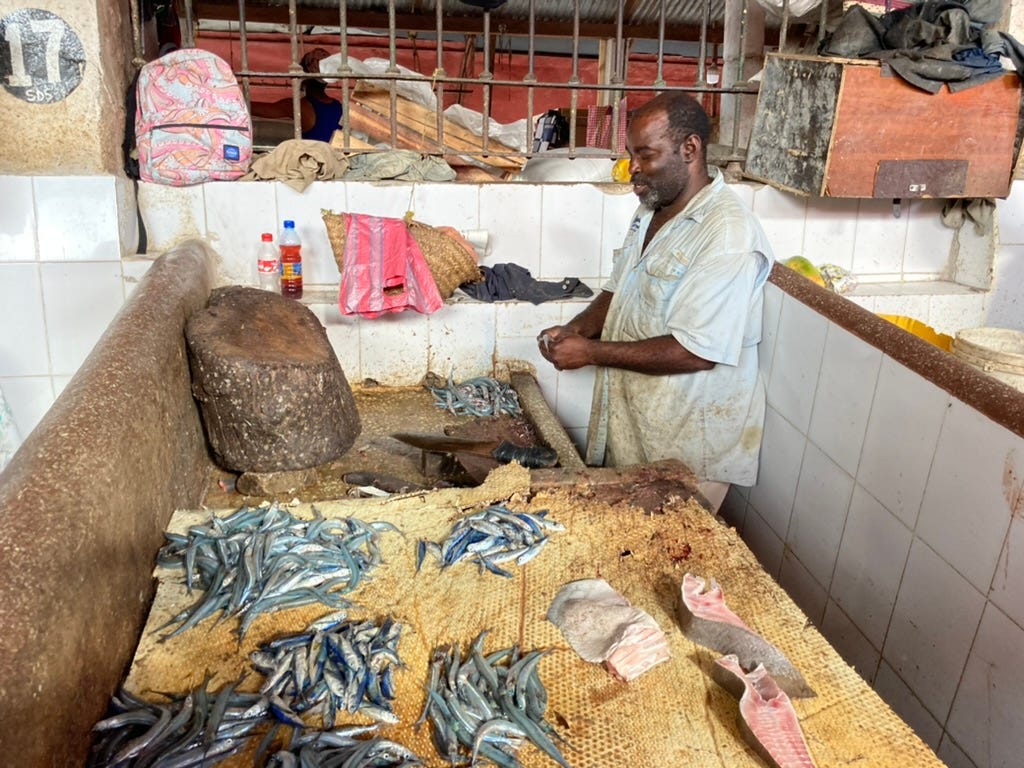Dear Beloved Reader:
A few years ago, I unintentionally offended a close friend of mine by implying that those who had not been to a place should not hold strong opinions about it.
“If three people are discussing the moon,” I remember saying, “And two of them have never been there, but the third is an astronaut who has, the first two should defer to the astronaut and do more listening than talking.”
My argument seemed to hold water when I was making it, but my friend was having none of it. That’s no surprise. Telling someone that they are not entitled to their opinion is no way to win friends and influence people! The debate caused a temporary, exceptional breach in an otherwise long and peaceful friendship.
Some time later, after reflecting, I realized I was wrong and wrote my friend a letter of apology, including the following explanation.
When I was at your house last December, I kept using the example of the astronaut who had been to the moon, debating with someone who had not. “I’m sorry,” I remember saying. “But the astronaut simply has a more informed opinion. There is no other way to see it.”
But there is another way to see it.
Do not the poets, songwriters, mystics, and lovers, those who throughout the ages have gazed at the moon and been moved by it, albeit never having been there, have a valid opinion worthy of our consideration?
Of course they do.
And so I was wrong. It took me some time, and another life experience, to see it, but there it is. I apologize.

It’s been many years since I made that apology, and I still agree with my humbled self. Were I to have that same debate with my friend today, I would argue that the astronaut should stay quiet, allowing the other two to ramble on as they wish.
My mistake was possessing what I refer to as travel arrogance, that is, a smug, haughty, dismissive attitude toward those who have not had the jetsetter’s privilege of jaunting around the world.
“Oh, I’ve been to Uzbekistan,” the arrogant traveler says, pulling out his phone with its thousands of photos. “Let me tell you how marvelous it is.”
Thus ensues a twenty-minute travel diatribe, one that no one asked for and no one wants to hear. Substitute China, Saudi Arabia, Paris, the moon, or anywhere else, and you get the idea.
I understand the temptation of travel arrogance. When you’ve been somewhere cool and fascinating, you are dying to tell people all about your experience! But as my father used to say, crediting Dale Carnegie and holding up his pinky for emphasis:
“The average person is more interested in the tip of their little finger than they are in your whole life story.”
In other words, if no one asks for your opinion, then chances are they are not interested in hearing it.

The Antidote to Travel Arrogance
The following true story provides a good example of how to avoid the temptation of travel arrogance.
Two men were engaged in small talk at a cocktail party.
“What is it that you do?” asked one, a younger man.
“I do a bit of sailing,” said the second, an older man.
The younger man, obsessed with the tip of his little finger, made no further inquiries of the older man and eventually walked away.
Another partygoer who had overheard the conversation said to the younger man, “Do you know who that person is?”
“No. Who?”
“That is Sir Robin Knox-Johnston, a legendary British sailor! He was the first person to sail solo non-stop around the world!”
A bit of sailing my eye!
Failing to inquire more about Knox-Johnston’s story is what I would call a whopper of a missed opportunity. Lacking curiosity, the younger man failed to learn about sailing from one of the world’s best, and thus dwells in ignorance.
Sir Robin, for his part, does not need to cock-a-doodle-doo about his accomplishments. They speak for themselves, and he is content in his humility.

I admire Sir Robin, but I confess I am not like him. If I were, I would not post pictures of my “sailing” in this essay. I would learn to stay quiet about where I’ve been and what I’ve experienced, even if it means biting my tongue. Then, if my friends want to know, they’ll ask. Some will and some won’t.
“Surround yourself with people who have a thirst for adventure as strong as your own.”
Blake Butcher
Alas, travel arrogance continues to trip me up. Recently, I responded angrily to an exchange with someone who implied that because I live and travel outside the United States, I am unaware of, not affected by, or do not care about what is happening inside my country.
“You don’t understand,” that person said. “You have no idea what’s happening here and how bad it is. But why should you care? You don’t live here. You chose to run away.”
His bogus accusation instantly reminded me of an old bumper sticker from America’s Vietnam War era—one I never liked. It said, “America. Love it or leave it.”
The false dichotomy proposed by this bumper sticker, and by extension the person’s assumptions about me, fails on two counts.
The first is that it is possible to gain an expansive understanding of a place by seeing it from afar or through another’s eyes. It is also possible that to love a place, sometimes one must leave it.






The second is that many people, myself included, leave places for various reasons. In my case, I was not running away from the U.S. because I did not love it. I recognize that all countries have their pros and cons, and the U.S. is no exception.
I was instead running toward something different — a change of scenery from the one I’d had for nearly 50 years. I was ready to take a bite from a different apple! Leaving the States does not mean I don’t care about who or what I left behind, or that I don’t stay informed.


Jesus the Wanderer
I like to think that Jesus was someone who left home but who still cared. The Bible tells us he was teaching his elders in Jerusalem at the age of 12. He does not reappear until the age of 30, when he started his ministry.
Where was he for 18 years? The Bible does not say.
Where were you and I in our late teens and twenties? Think about all the life experiences we had in those years, the changes we went through, the people we met, and the friends we made. Is it not reasonable to assume that the precocious 12-year-old Jesus would, as a young man, pack his bag and take off, backpacking to India or wherever? Is not Jesus exactly the kind of guy who would want to explore the world?
I believe so.

But Jesus never stopped caring. I believe he returned home from his travels with a “boon,” that is, a helpful or beneficial thing, and offered it to his people.
Offering a boon is the final epoch in “The Hero’s Journey,” a monomyth made famous by Joseph Campbell, author of “The Hero with a Thousand Faces.” In that book, Campbell describes the common template of stories involving a hero who goes on an adventure, is victorious in a decisive crisis, and comes home changed or transformed. It is the story of Jesus, Odysseus, Luke Skywalker, and all of us, too.
Some accepted the boon Jesus offered, but many did not. They just weren’t interested. They didn’t ask. They weren’t curious.

I suppose I’ll never have the humility to stop cock-a-doodle-doing about my travels. I’m no Sir Robin Knox-Johnston and certainly no Jesus. I’m just an arrogant guy, and Substack makes it easy for me to brag.
But here’s a tip for us all, however and wherever we travel.
“I do a bit of sailing.”
When you hear a comment like this, what you do next will make all the difference in who you become.
“A desk is a dangerous place from which to view the world.”
John le Carré, English Author
Coming Up Next!
This Saturday, May 3, 2025, I’ll post the next episode of my “How to Tour America Through Her Music” podcast. This episode is about music from the country’s picturesque and magical Pacific Northwest region.
With every podcast episode I produce, I fall more in love with my country, not because of its governments, which I dislike, but because of its fascinating and wonderful people.
I understand it’s fashionable nowadays to dislike America and Americans, and I hear some of that where I live, but I stand in my conviction that the American people rock!
Power to the people!
Additional Reading
If you want to get excited about the good ole USA, I recommend historian William Manchester’s excellent book “The Glory and the Dream.” At 1357 pages, it’s a beast, but well worth the time to read.
If you want to freak out over how bad things can get behind the closed doors of America’s powerful, I recommend reading “One Man Against the World: The Tragedy of Richard Nixon,” by Pulitzer Prize-winning author Tim Weiner. You think Trump is bad? Haha. Wait till you read this.







I have other friends who travel the world, post photos and write, journaling their travels. I find them edurite and fascinating like you. Good to have friends like that. They peak my interest in the world. Stay curious my friend
Great observations, Brant. I so know what you are talking about. Guilty as charged. 🤣